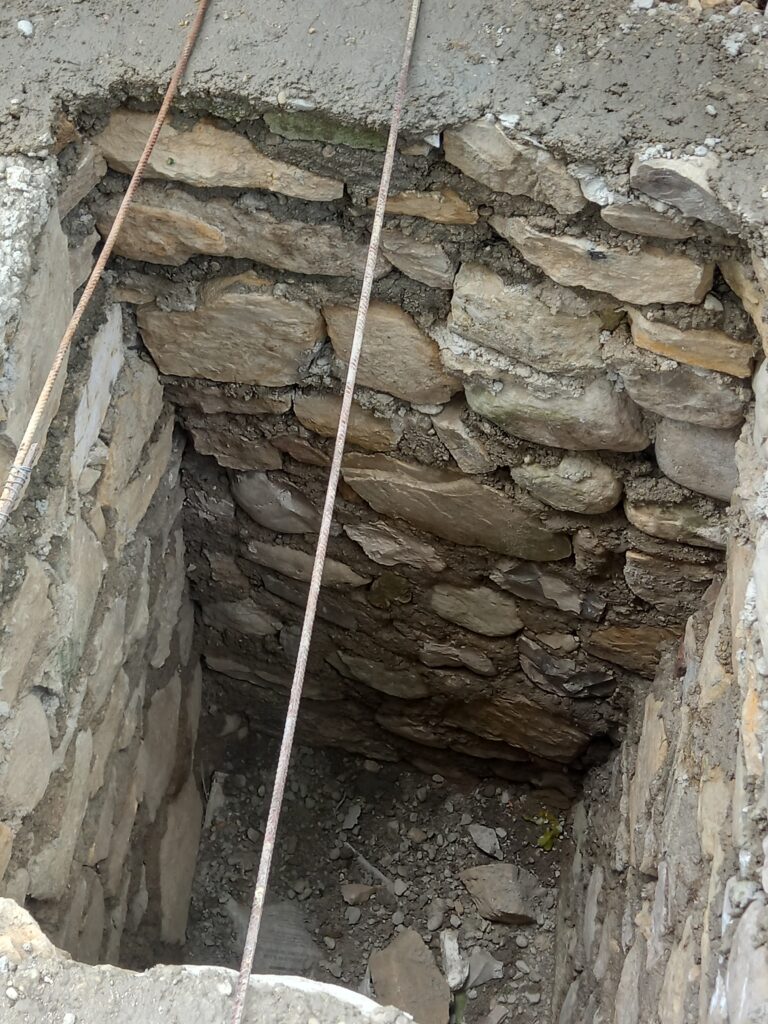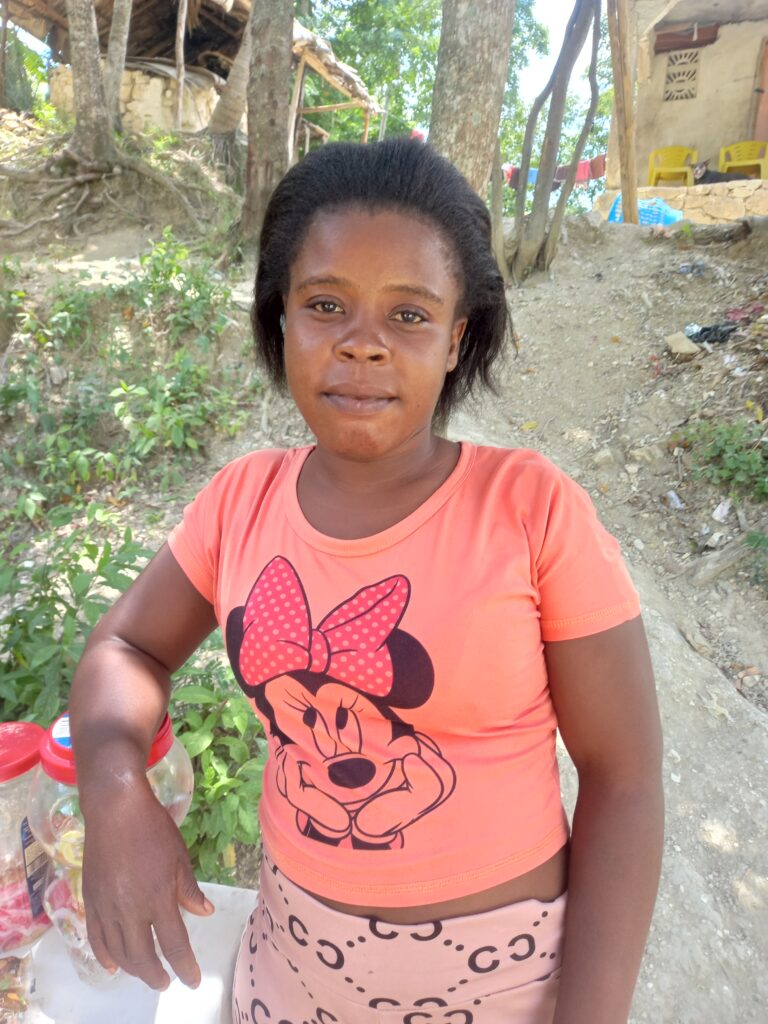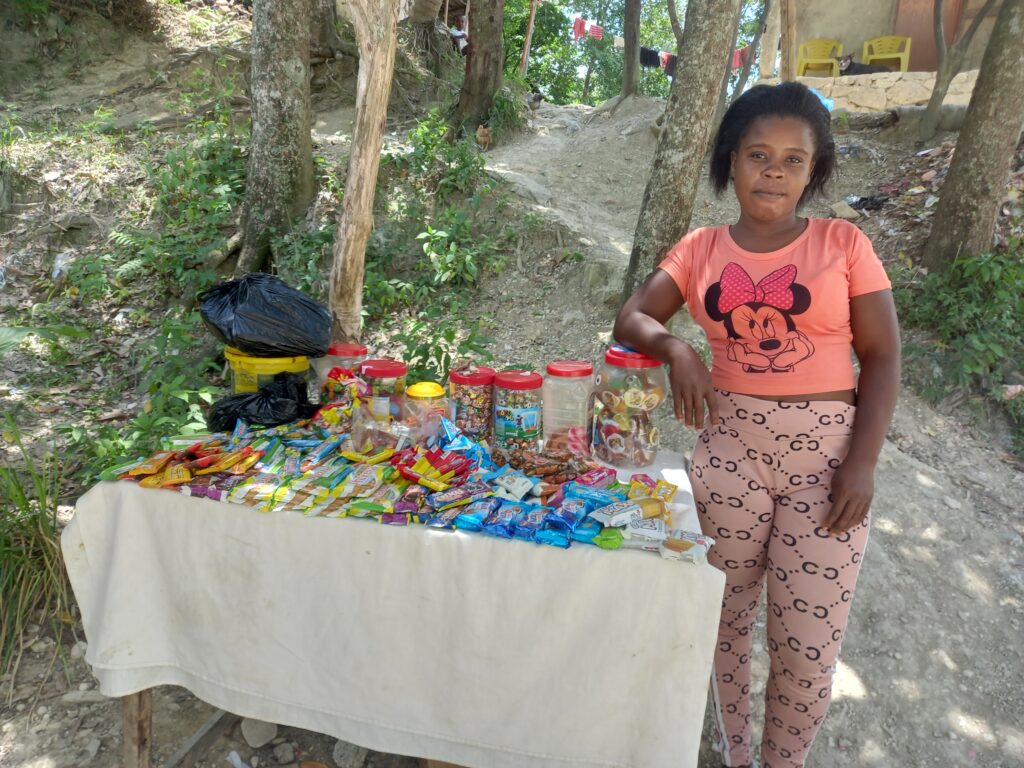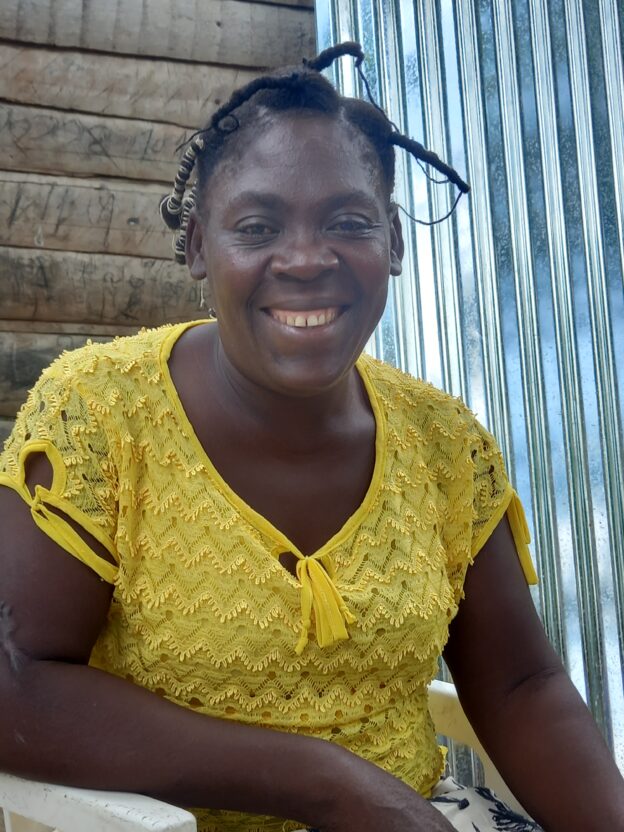Emanie lives just outside of downtown Savanèt with her husband and their three kids. The family has lived mostly from farming. They plant a small slope behind their house and rent another plot nearby.
Emanie’s husband also sometimes earns money as a mason’s assistant. He doesn’t have the skills to get a job as a mason himself, but he can carry mix cement with a shovel, or carry the mortar, rocks, or blocks that need to be lugged around. But it’s hard to get work. “Each mason has his own crew, so you can ask around all the time and still go five or six months without work.”
They managed what little they had well enough to send all three children to school this year, but they were only able to pay tuition for two of them. That means they haven’t been able to ask for their youngest child’s report card yet, and they won’t be able to register her for school in the fall without the report card in hand.
She is excited about the opportunity that CLM is offering her. She’s asked the program to provide her goats and a pig as income-generating assets. She says that raising livestock can help her. “When your animals have young, you can sell them to send your children to school..”

She and her husband have been working towards one major change in their lives already. One of the first transfers that the families who joined CLM with them received was the materials to install a pit latrine. Normally, they receive three sacks of cement and a few additional things that construction requires. The cement is used to make a square that covers the pit and a seat. But Emanie and her husband decided to do much more. They borrowed some additional cement so that they could line the pit with stone walls. It makes the work much more expensive, though it may also be more lasting, though the fact that pits eventually fill — whether or not they have cement walls — makes the value of their investment questionable.

Woodia is a single mother of three who lives just down the main road from Emanie. The father of one of her children pays for his child’s school, but he contributes in no other way. The father of the other two does not do even that. “I am their mother and their father.”
She lives with her parents, and until she joined CLM she depended on them for everything. Three of their children live independently in Pòtoprens, but the parents still support Woodia, her younger brother, a young orphaned nephew, and Woodia’s three kids. Woodia’s father is a farmer, and her mother sells housewares at the market in downtown Savanèt using microcredit loans that she takes from Fonkoze Financial Services.
Woodia used to borrow from Fonkoze too, but the money always passed through her hands. She’d spend everything she had on her children, and her business would disappear. Her parents repaid the balance of her last loan.
When Woodia’s mother saw that Woodia had nothing to do, she took some of her loan money and set up a small grocery shop in front of their home. She had Woodia run the shop while she devoted her time to her larger business. It gave Woodia something to do, and increased the household’s income, but didn’t give Woodia anything of her own.
But when Woodia joined CLM she became a member of a sòl. It is a type of savings club common throughout Haiti. Fonkoze’s case managers organize them for CLM members. Members contribute a small agreed-upon sum every week, and one of the contributors gets the whole pot. It is a great way for members to access the lump sums that even small investments require.
Woodia took the money from her sòl and established a second business right next to her mother’s. She arranges snack foods — crackers, candy, and the like — on a table next to her mother’s shop. She can continue to manage her mother’s store while growing her own business in parallel. She started with 1500 gourds worth of merchandise, and she invested her profits back into the business. It is now worth 3000 gourds. A local wholesaler saw her effort and came to believe enough in her to sell her an additional 4500 gourds worth of merchandise on credit.
So, Woodia’s off to a good start. She’s asked the team to provide her with goats and more merchandise to grow her commerce. Her mother has told her that, once she has paid off her latest loan, Woodia can simply buy the grocery business that she’s already been running.

